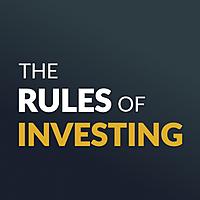Top-rated adviser Paul Burgon reveals his 10 principles for investing in 2025 and beyond
If you’re feeling upbeat about markets as we head into 2025, you’re not alone. 41% of investors that have participated in Livewire’s Outlook Series Survey so far said they are feeling optimistic about markets right now, well ahead of the next most popular response (anxious, which received 30% of the votes.)

The responses are not surprising, given the decisive run in equity markets in recent years. The S&P 500 is on the cusp of racking up consecutive years of 20%+ returns. This is a feat that has only been achieved four times since 1926.
The other instances occurred in 1927-1928 before the Great Depression, in 1942-1943 during World War II, from 1995-1999 there were unprecedented gains with five 20%+ years, and more recently in 2017-2018.
Investors are likely feeling optimistic given the strong returns on offer, whilst it is natural that anxiety is growing and a recognition that the good times won’t last forever.
Unfortunately, history provides little solace for those investors looking to the past in the hope that it might give some clues as to what 2025 might hold. The returns in the years following the four historical precedents are ambiguous, with a 50/50 split between negative and positive returns. However, the drawdown years were smaller than when markets continued to rally.
So, how does this information help us, and what should investors think about as we head into 2025?
To answer these questions, we drew on the expertise of top-rated financial adviser Paul Burgon, Chief Investment Officer and Managing Partner at Lipman Burgon and Partners. Paul has decades of experience allocating capital on behalf of his clients and was ranked #6 in 2024 on Barron’s list of top financial advisers.

Even with his experience, Paul acknowledges that predicting the future is fraught with danger and a recipe for disappointment. However, over his career, he has developed a set of ten principles that he believes can underwrite investment success.
These principles draw on the renowned endowment model of investing developed by David Swenson and are now widely adopted by many leading investment institutions, including Australia’s Future Fund.
The returns of Swenson's most well-known project, the Yale University endowment fund, are compelling, having delivered annual returns of 14% over 35 years.
Summarising the underlying objective of Burgon’s philosophy is relatively simple. He is seeking to remove or dampen the influence of emotions on investment decisions. In 2024, access to extensive research, institutional-grade investment models and improved access to private markets make it possible to achieve more consistent returns, reducing the prospect of poor decision-making at times of peak emotion.
“If you can have more reliability of outcomes in your equity allocation and more consistency of returns that is a much better way to allocate capital than trying to chase the next high-performing manager," said Burgon.
While few of us will be seeking to replicate the allocation of global endowment funds, I’m sure most of us would like to bank the healthy returns of recent years and dampen the impact of any impending market dislocations.
In the final episode of this season of The Rules of Investing, we leave you with valuable asset allocation and portfolio construction insights from one of Australia’s top financial advisers. And while we’d all love to see another 20% + year from the S&P 500, it makes sense to ensure your portfolio can withstand the chance that 2025 could be a down year. Better to be safe than sorry!
Please click on the player below to access the podcast.
Related Links
Ten Principles for a New Investing ParadigmListen and Follow
Time codes
- 0:00 - Introduction
- 2:30 - Where are we in the cycle of investor emotions?
- 4:35 - What lies ahead for markets?
- 9:05 - Opportunities in 2025
- 14:50 - A history of Endowment Model investing
- 19:52 - Embracing the value of beta
- 23:57 - Risk Budgeting
- 28:18 - Factor exposure explained
- 31:10 - Why private markets are compelling
- 37:33 - Overweight and underweight positions
- 40:19 - Three regular questions


